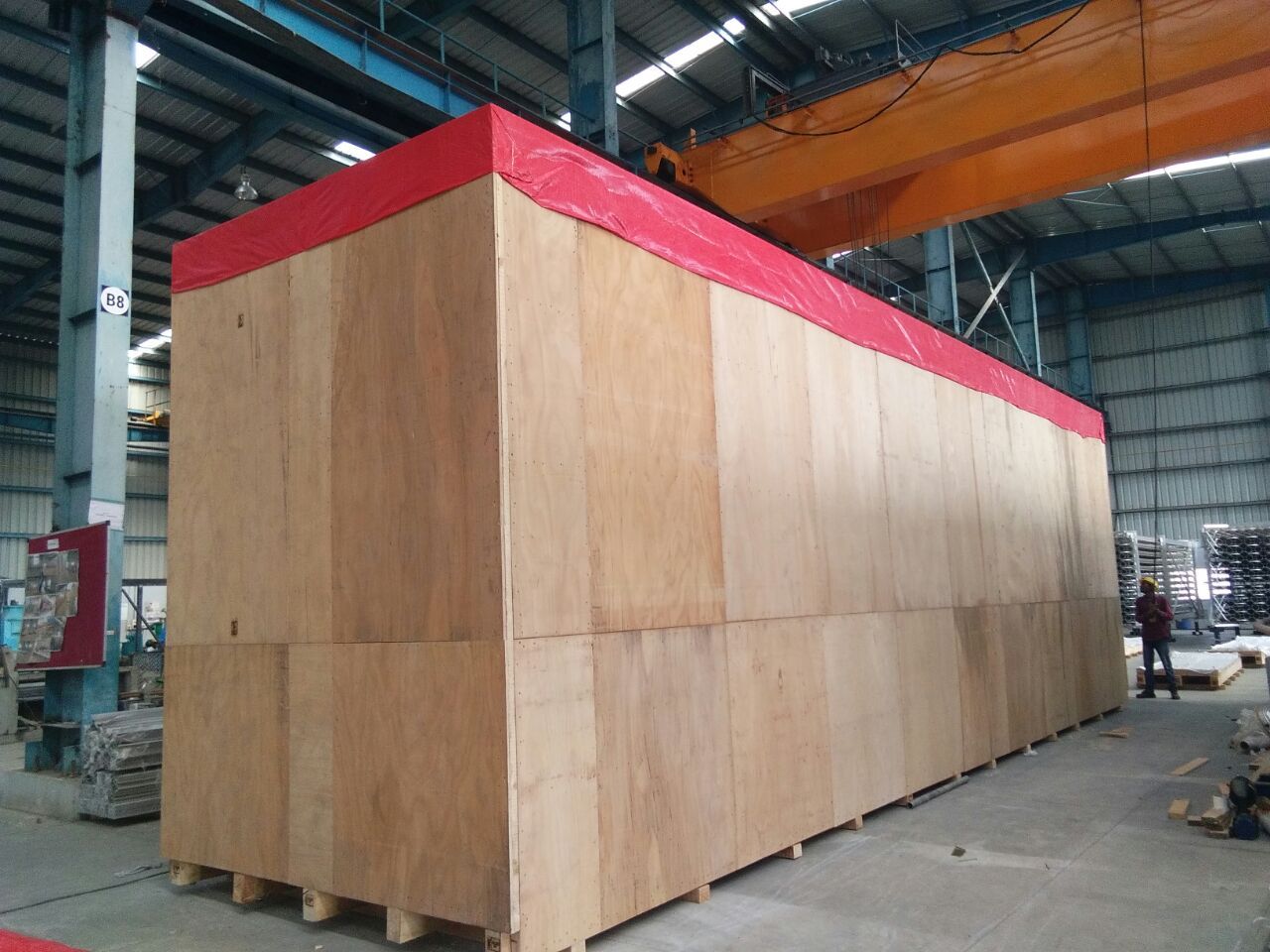In the fast-paced world of logistics and supply chain management, efficiency and cost-effectiveness are paramount. Every product, from raw materials to finished goods, must be transported, stored, and handled with care to avoid damage and minimize downtime. This is where pallets play an essential role. These seemingly simple platforms are a cornerstone of modern logistics, making them indispensable in the global supply chain. In this blog, we will delve into the importance of pallets in the logistics and supply chain industry and why they are so crucial to businesses worldwide.
1. Pallets Enable Efficient Movement of Goods
One of the primary reasons pallets are so vital in logistics is their ability to streamline the movement of goods. Pallets provide a stable, uniform base for stacking and storing products, which makes it easier to load and unload items from trucks, trains, and ships. Whether goods are being transported in bulk or in smaller quantities, pallets ensure that the process is both efficient and secure. They allow businesses to handle large volumes of products at once, reducing the time spent on loading and unloading goods.
Using pallets allows companies to use forklifts and pallet jacks to quickly move large loads without needing to handle each item individually. This results in faster, more efficient workflows across warehouses and distribution centers, contributing to shorter lead times and better overall operational efficiency.
2. Cost-Effectiveness and Reducing Handling Costs
In the logistics industry, time is money. The faster goods are moved from one location to another, the more cost-effective the operation becomes. Pallets significantly reduce the amount of manual labor required for handling goods. By providing a standardized platform for handling products, pallets eliminate the need for workers to individually lift and move products, reducing the risk of injury and the associated costs.
Additionally, pallets are designed to be stackable, which allows for maximum space utilization during storage and transportation. This means that more goods can be transported in a single trip, reducing the number of shipments needed and lowering transportation costs. With palletized loads, businesses can make the most of the available cargo space, reducing waste and improving cost efficiency.
3. Standardization and Compatibility Across the Supply Chain
Pallets help create a standardized system for transporting goods, which is vital for the smooth functioning of the supply chain. Regardless of the type of products being transported, pallets provide a uniform platform that is compatible with most types of shipping and handling equipment—forklifts, pallet jacks, and conveyor systems.
This standardization means that pallets can be used across various sectors and industries, making them a versatile solution. Whether you’re shipping electronics, furniture, food, or industrial machinery, pallets make it easy to move products across different modes of transport (road, rail, air, sea) without the need for re-packaging or reloading.
Furthermore, standardized pallet sizes mean that inventory management becomes simpler. Warehouses, retailers, and suppliers can easily organize and track goods, improving visibility in the supply chain and reducing the likelihood of errors or misplacement.
4. Enhanced Product Protection and Damage Prevention
When goods are transported or stored without the use of pallets, they are more susceptible to damage from handling, stacking, or environmental conditions. Pallets provide stability, ensuring that products are less likely to shift, crush, or get damaged during transport or storage. They also help protect goods from direct contact with the ground or the elements, which is particularly important for perishable or sensitive items.
Additionally, pallets offer protection from moisture, dirt, and other environmental hazards. For example, wooden pallets are typically raised off the ground, preventing items from coming into contact with dirt or moisture, which could lead to contamination or rusting, especially in industries like food or pharmaceuticals.
5. Flexibility in Storage and Warehouse Management
The efficient use of space is one of the key factors in effective warehouse and inventory management. Pallets enable businesses to maximize their storage capacity by making it easier to stack products vertically. Palletized goods can be organized into neat stacks, which helps save floor space in warehouses and reduces clutter. This makes it easier to manage inventory, locate products quickly, and ensure optimal storage conditions.
Additionally, the standardized design of pallets allows for better automation in warehouses. Automated systems, such as robotic arms and conveyor belts, can easily move pallets throughout the warehouse, streamlining operations and reducing the need for manual labor. This increases the overall efficiency of inventory control and order fulfillment.
6. Facilitating International Trade and Global Logistics
Pallets are not just important for local or national supply chains; they are essential for international trade. As global trade continues to grow, the movement of goods between countries has become more complex. Pallets provide a common platform for moving goods across borders, reducing the risk of damage or loss during the transit process.
In international logistics, pallets simplify customs procedures, as they ensure that goods are packaged in a standardized way, which is easier for customs authorities to inspect. Furthermore, pallets are designed to meet international regulations, such as the ISPM 15 standard for wood packaging material, which is required to prevent the spread of pests and diseases across borders. This makes pallets a critical component in ensuring compliance with global trade regulations.
7. Sustainability and Environmental Benefits
As industries around the world seek to reduce their carbon footprint, pallets are increasingly recognized as a sustainable packaging solution. Many pallets are made from renewable resources, such as wood, and can be reused multiple times before needing to be recycled. Wooden pallets, for example, have a long lifespan and can often be repaired and reused, which reduces the amount of waste generated by companies.
Moreover, the recycling and repurposing of pallets have become a key focus for many companies aiming to operate more sustainably. Recycled pallets help conserve natural resources, minimize waste, and reduce the overall environmental impact of packaging materials.
8. Support for E-Commerce and Fast-Paced Retail Operations
The rise of e-commerce has revolutionized the logistics industry, with companies like Amazon, Flipkart, and others relying on fast and efficient supply chains to meet customer demand. Pallets play a crucial role in supporting the speed and efficiency needed for e-commerce operations. Goods are often pre-packaged and palletized to streamline the fulfillment process, ensuring that orders are processed quickly and accurately.
Moreover, in the retail sector, pallets are used to organize products in a way that makes it easier for store employees to restock shelves and for customers to shop efficiently. Palletized deliveries ensure that products can be quickly and safely moved from the warehouse to the retail store, improving inventory turnover and sales.
Conclusion
Pallets are far more than just a simple platform for storing goods. They are an essential tool in the logistics and supply chain industry, enabling businesses to optimize efficiency, reduce costs, improve product protection, and support sustainable practices. From streamlining warehouse operations to facilitating international trade, pallets play a crucial role in every step of the supply chain.
As industries continue to evolve and the demand for faster, more efficient logistics increases, the importance of pallets will only grow. Whether it’s for a small local business or a multinational corporation, pallets will remain a cornerstone of logistics, making them an indispensable asset for the modern supply chain.




Leave a Reply